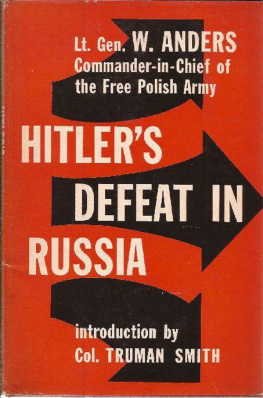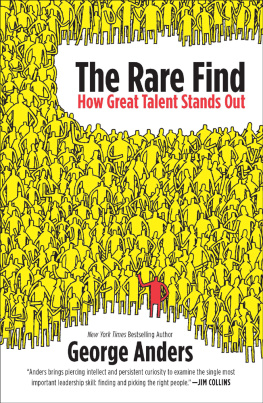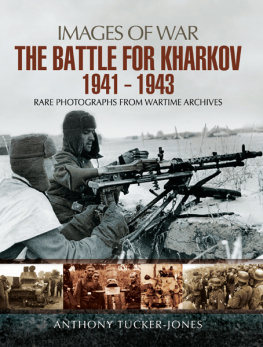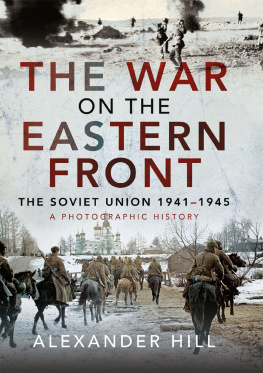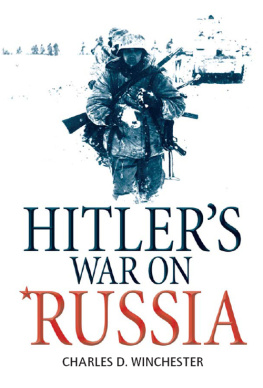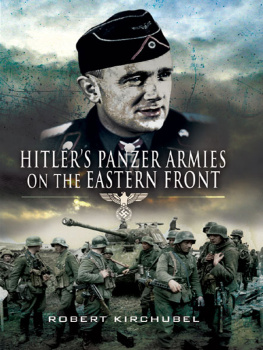
HITLERS DEFEAT IN RUSSIA
General Wladyslaw Anders
Foreword by Colonel Truman Smith
TABLE OF CONTENTS
Contents
FOREWORD
TO BOTH professional soldiers and historians, the causes of the German catastrophe in Eastern Europe in the years from 1941 to 1945 will ever remain an absorbing problem. Why did Hitlers hitherto invincible Wehrmachtwhich between September 1939 and June 1941 had knocked over like tenpins the far from negligible armies of Poland, France, and Yugoslavia, had driven three-hundred-odd thousand British from the continent in a campaign of a few brief weeks, and had spread the rule of Hitlers Reich from Brest to Crete and from Arctic Narvik to the desert sands of Tripoliwhy did this Wehrmacht come to a dead halt before Moscow within six months of launching its all-out assault on the Soviet Union? Why, once again in the autumn of 1942, did the Wehrmacht suffer such an overwhelming defeat at Stalingradafter occupying nearly half of European Russia, reducing the Red armies to less than two and one half million men at the beginning of 1942, and planting the swastika on Mount Elbrus in the Caucasus, more than 1,000 miles from its advanced base in Poland?
These are questions General Anders attempts to answer in the present analytical study of the Russo-German warand, in my opinion, he succeeds to the full, with amazing clarity and unanswerable logic.
The causes of the catastrophes which Hitlers armies suffered before Moscow and at Stalingrad are particularly baffling if we remember the astounding initial German victories of the summer of 1941. Between June and October of that year, a series of encirclements of Russian armies and army groups was carried out by the Wehrmacht on a scale hitherto unrecorded in history, yielding probably in excess of two million prisoners. These German victories brought Russian morale to such a low point that desertions began to occur on a scale threatening to undermine the foundations of Red rule. Separatist movements sprang up in White Russia, the Ukraine, and the Crimea. Russian industry was partially paralyzed by the German seizure of industrial plants, as well as by the German occupation of the iron and coal fields in the Ukraine and the Donets basin. Yet, despite these enormous successes, catastrophe not triumph was the fate of Hitlers armies. Impressive as their early victories had been, their subsequent catastrophes from 42 to 45 were more decisive and more dramatic still. It is the battles of Moscow and Stalingrad that we remember today, not the repeated encirclements of the Russian armies in White Russia and east and west of Kiev in the summer of 1941.
The Russo-German war involved the largest land armies ever to face each other. It compels the attention of every student of warfare, be he soldier or civilian.
General Anders expresses the opinion that the decisive factor in bringing victory to Stalin, and defeat to Hitler, lies in the strategies employed by the respective High Commands. So great were the distances involved in Eastern Europe that neither army, though both were numbered in the millions, could present a solid unbroken front to its enemy. Initial advances without serious fighting were always possible for either Russia or Germany, provided the High Command holding the initiative selected a gap in the lines rather than an area which was solidly held. In such a type of war, speed of movementrather than technical excellence of weapons, or the ability to mass overwhelming firepowerproved the decisive factor. It was above all else German qualitative superiority in tanks and armored divisions which gave Hitler his initial victories, and Russian quantitative superiority in these same weapons which brought about the ultimate collapse of German resistance.
Not since the Napoleonic and the American Civil Wars did the richness or poverty of strategic insight at the rival headquarters play such an important role as they did in this war on the steppes of Russia. Of course, it would be an oversimplification to state categorically that other factors did not contribute to Stalins victory and Hitlers defeat. General Anders does not fall into this error. He discusses thoroughly and impartially such matters as the training needs of the troops, the tactical leadership qualities of the officer corps of both armies, the use and misuse of the airfleets at the disposal of the contestants, and the supply difficulties inevitably encountered by both armies in waging land war over distances measured on a continental scale. Nevertheless, General Anders sticks to his thesis; strategyand, to be sure, largely bad strategy on Hitlers partdecided the wars outcome. This opinion, I believe, most professional soldiers share today.
Hitlers incredible strategic mistakes may be said to be the theme song of this book. General Anders recognizes fully the staying power of the Soviets, the bravery and endurance of the Red soldier, and the importance of the material aid given to Russia by her Western allies. Yet, again and again, he returns to this primary matter: the dilettantism of Hitler in all things military, and the long series of grave strategic blunders to which this dilettantism gave rise.
General Anders even suggests that it was Hitlers strategy, rather than any special military aptitude of Stalin and the Russian High Command, which brought about the German catastrophe. America should take heed of this point. General Anders, it seems to me, has made an incontrovertible case that no nation, be it America, Britain, or France, may without gravest peril entrust the leadership of its armed forces in war to one who is not trained from youth to the profession of arms.
Replete with lessons for the future as this Russo-German war is to the professional soldiers of all nations, these lessons need to be weighted with caution. For in one important respect, the contest on the steppes of Russia was warfare of World War One type. Neither side understood the importance of Air Power; and neither side possessed the industrial facilities to call huge strategic air fleets into existence. To be sure, both the Russians and the Germans had air fleets numbering several thousand planes. These fleets, however, did not play a decisive role in shaping the outcome. No serious attempt was made by either side to employ strategical bombing to paralyze the others industrial plans, and it is doubtful if either air fleet was large enough or skilled enough for such a task. Even in bringing about tactical successes of one or the other army, the influence of air power was small.
Probably the most interesting feats of air power in the war were the German attempts to supply by air corps and armies which on several occasions were surrounded by the Russians. This air supply often sufficed to maintain German ground fighting power until their forces had cut their way back to their own lines. At Stalingrad, however, the air supply of the beleaguered Sixth Army failed, and this failure sealed the Armys fate and with it the outcome of the whole war.
Readers of this book, then, should bear in mind that the course of the war might have been quite different if either side had possessed a strategical bombing fleet, akin to that superb one at General Eisenhowers disposal in 1944 which simultaneously destroyed Rommels powers of resistance in Normandy and crippled German industrial might in its homeland.
In my opinion, General Anders analytical study is the best book which has yet appeared in any country and in any language that deals with the causes of the German catastrophe in Russia. It is a particularly significant book for three reasons. General Anders is a highly skilled professional soldier. He has examined all available sourcesGerman, Russian, and neutral. Finally, he is about as impartial a writer on this controversial subject as it is possible to find anywhere in this troubled and divided world.
Next page
